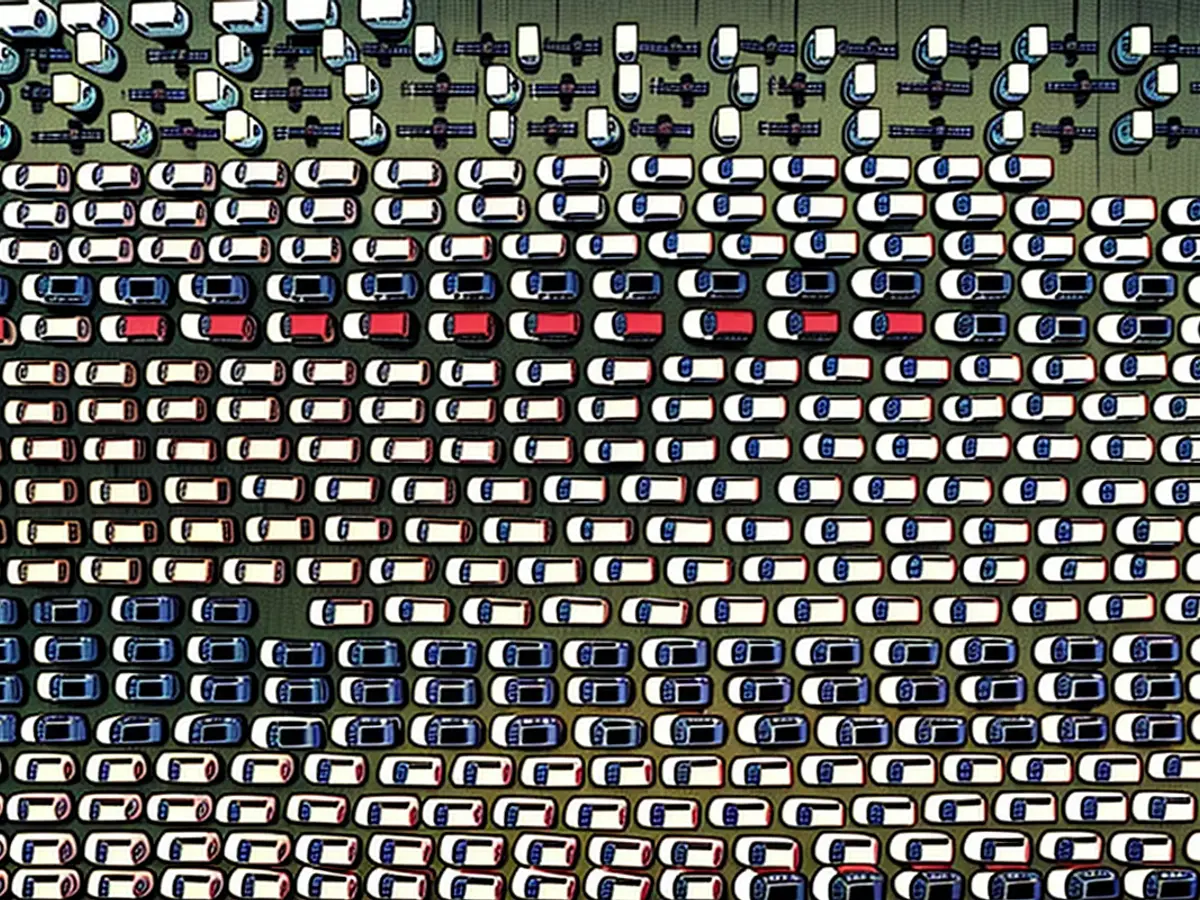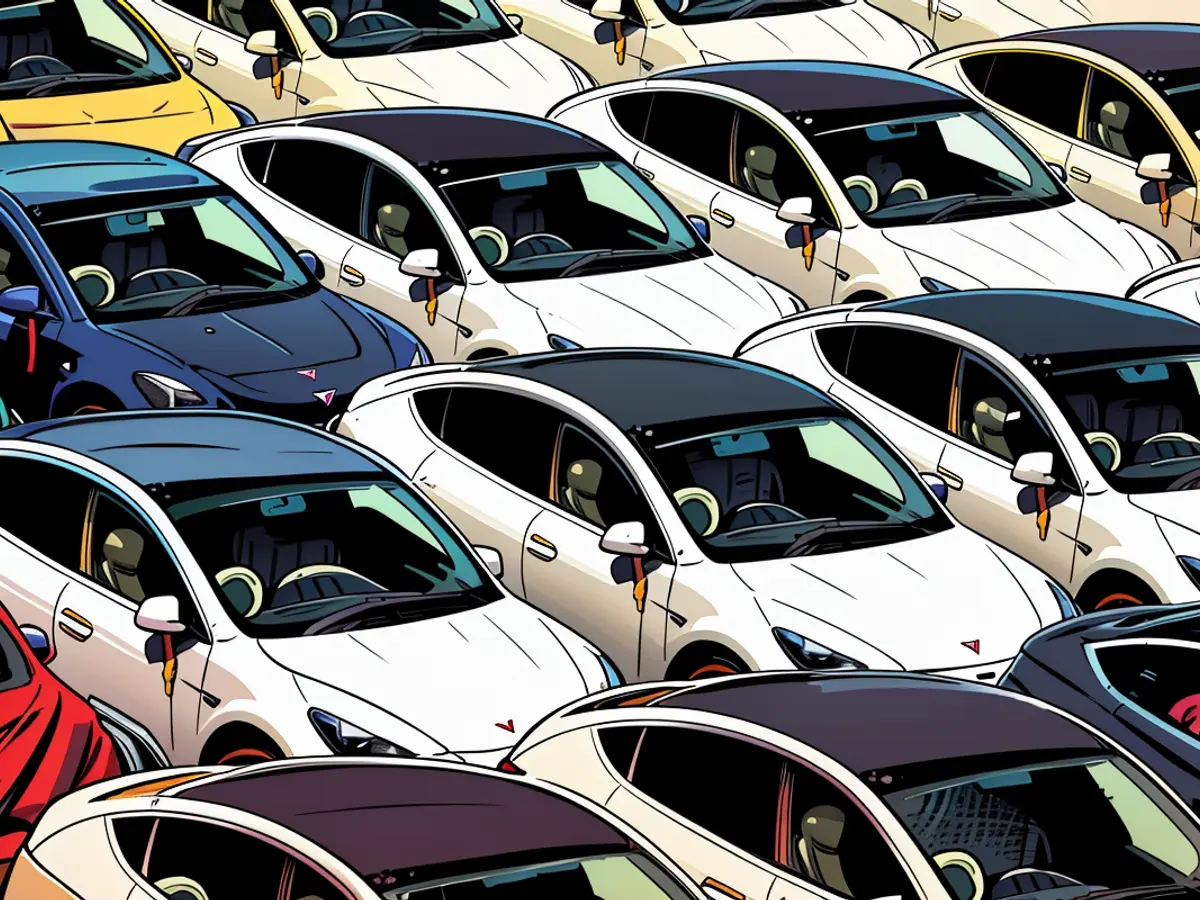E-cars - Up to 38 percent more expensive: EU punitive tariffs against China come into force
The EU Commission is taking action: Starting at midnight on Friday, it is temporarily imposing tariffs on exports of Chinese-made electric vehicles. This information comes from the EU bulletin. The European Union (EU) is confirming its decision from June: Manufacturers in China will temporarily have to pay additional taxes of up to 37.6%, if no negotiated solution is reached by July 4th. The EU and China have recently been in talks about the tariffs that Brussels intends to impose to protect domestic competitors from a flood of subsidized vehicles.
China denies the allegations of subsidies and threatens with comprehensive countermeasures. Government sources indicate that Germany is against the EU plans. German carmakers made one third of their sales in China last year. France, on the other hand, is among the supporters, along with Italy and Spain.
Why are the tariffs temporary?
The tariffs will be collected starting at midnight on Friday through a security deposit – think of it like a bond. Whether the EU will actually keep these or not depends on whether a solution is found with the Chinese government in the coming months. This second deadline expires no later than November. The EU member states will then have to decide whether to introduce permanent tariffs – in which case, the preliminary charges would be retroactively collected.
What exactly did Brussels decide in June?
Brussels is exercising its right under international trade rules to raise EU import tariffs on Chinese electric vehicles because China's government is providing unjustified subsidies to domestic automakers. The EU aims to protect its auto industry from artificially cheap imports, but remains far behind US tariffs of over 100%, as it intends to adhere to the rules of the World Trade Organization (WTO). Possible countermeasures are considered unacceptable by the EU.
Have China and the EU seriously negotiated?
The EU Commission and Chinese negotiators have reportedly been in talks since last week. Brussels made it clear that a negotiated solution would require a contribution from Beijing by July 4th, outlining a plan to eliminate the criticized harmful subsidy practices for the production of electric vehicles.
Reuters reported on a confidential meeting between the Chinese state-owned SAIC conglomerate, market leader BYD, and BMW and Volkswagen. A mutually acceptable solution was apparently not in sight.
Which car company must pay how much extra tariff?
The tariffs will vary depending on the manufacturer and cooperative attitude in the formal EU procedure: For the BYD group, known in Europe as the MG brand, due to good cooperation and lower subsidies according to the EU investigation, the most favorable rate is 17.4%. Geely Group must pay an additional 19.9% tariff. SAIC from Shanghai, known in Europe as the MG brand, will be penalized with 37.6% due to insufficient cooperation. Tesla, whose Model 3 for Europe is produced in Shanghai, is predicted to pay an additional 21% tariff.
Western manufacturers, including Volvo with the compact SUV EX30, are affected as they manufacture in China. Volvo, the Swedish carmaker, has been part of the Chinese automotive conglomerate Geely since 2010. From next year, Volvo plans to build the car in its Belgian plant in Gent. For Volvo's imports into the EU, the Geely tariff comes into play.
Why is there a second deadline until November?
Due to the controversial issue of the customs confrontation with China among governments and carmakers, EU members are expected to issue a first recommendation in the coming weeks and indicate a trend to the EU Commission. According to Reuters, after a survey on Wednesday, several EU countries are still undecided on whether to support tariffs on Chinese electric cars. The majority are weighing the pros and cons of an escalating trade war with the second-largest economy in the world. This group includes Greece, Czechia, Ireland, Poland, Belgium's caretaker government, and the Netherlands. France and Spain have declared themselves in favor of tariffs.
The final decision on the new import restrictions should be made in the autumn, according to the EU plan. They could be blocked if a "qualified majority" of at least 15 member states and 65% of the EU population opposes them. The automotive industry employs approximately 15 million people in Europe.
What stance does the German automotive industry take?
The domestic automotive industry opposes the tariffs as harmful protectionism that is not beneficial for the EU or Germany. China is the largest automotive market in the world, and according to the VDA, China was the third-largest export market for German cars in 2023, after the USA and the UK. One-third of the exported vehicles fall into the category of more than 2.5 liters of displacement, which could be subject to potential Chinese import tariffs.
The head of the BMW Group's management board, Oliver Zipse, stated regarding the anti-subsidy investigation: "The introduction of additional import tariffs leads into a dead end." Instead of strengthening the competitiveness of European manufacturers, it harms the business model of globally operating companies, limits the offer of electric cars for European customers, and could even slow down the decarbonization in the transportation sector. "Such measures are a heavy interference with the free trade principle that the EU promotes." Volkswagen and Mercedes have taken similar positions in recent weeks.
Why are BMW, Mercedes, and others being so quiet?
Retaliatory measures from Beijing would cause more harm to the German automotive industry than the tariffs would benefit. There is a fear that with the tariffs, a reciprocal tit-for-tat trade war could begin, which could then spiral and affect other industries as well.
The background is also a strong dependence: According to the VDA, cars worth 15.1 billion Euros were exported from Germany to China in 2023, while imports were worth 4 billion Euros. Automotive suppliers exported parts worth 11.2 billion Euros to China, four times the value of imports.
The threatened increase in import tariffs on German luxury cars with engines over 2.5 liters from China would significantly impact German car manufacturers. Around 120,000 of the European cars exported to China belonged to this segment.
How does the German government react?
The German government holds little regard for tariffs on electric cars from China. It might have few options to change the Brussels vote, possibly even with allies like Sweden, Hungary, the Czech Republic, and Slovakia. According to reports, Federal Chancellor Olaf Scholz (SPD) proposed a deal between China and the EU where a uniform tariff of 15% would apply to Chinese and European auto exports. The EU Commission reportedly rejected: "no option."
Will China retaliate with counter-tariffs?
There are hopes that Beijing might react with limited countermeasures, primarily targeting luxury goods from France and Italy. Then, the counter-attack would mainly affect the countries that had most strongly lobbied for the tariffs. Beijing questions the results of the subsidy investigation fundamentally and describes the offensive for exporting electric cars as part of a mature industry that is now utilizing its export opportunities, just as the western industry has done in China for decades. Apart from the initiation of an Anti-Dumping investigation on imported pig meat from the EU, there has been no action so far.
According to the Chinese Ministry of Commerce, a review by Beijing that could lead to further countermeasures is already underway. Details would follow at a later time, it was reported this week.
Is there really a flood of Chinese electric cars in Europe?
Commission President Ursula von der Leyen spoke of China flooding Europe "with cheap electric cars." Across Europe, the share of "Made in China" cars in the electric vehicle market was 19% in 2023, in Germany 15%. More than half came from Western manufacturers like Tesla, BMW, or the Renault subsidiary Dacia, which produce all cars for Europe in China.
Current export expectations of Chinese manufacturers are not being met. The significant export wave, experts believe, will not start until 2026. The German automotive industry estimates that the share of Chinese electric cars on the European passenger car market will reach approximately 5-10% by 2030.
- Despite the EU's plans to impose tariffs on certain Chinese electric vehicle exports, German carmakers like BMW and Mercedes-Benz are concerned about potential retaliation from China, given their significant sales in the Chinese market.
- The EU's temporary tariff on Chinese-made electric vehicles is not just affecting Chinese companies such as BYD and Geely, but also Western manufacturers like Volvo, which has a significant presence in China through its partnership with Geely.
- The EU Commission is currently in negotiations with Chinese negotiators to find a solution that eliminates the criticized harmful subsidy practices for the production of electric vehicles, with the deadline for a contribution from Beijing set for July 4th.









